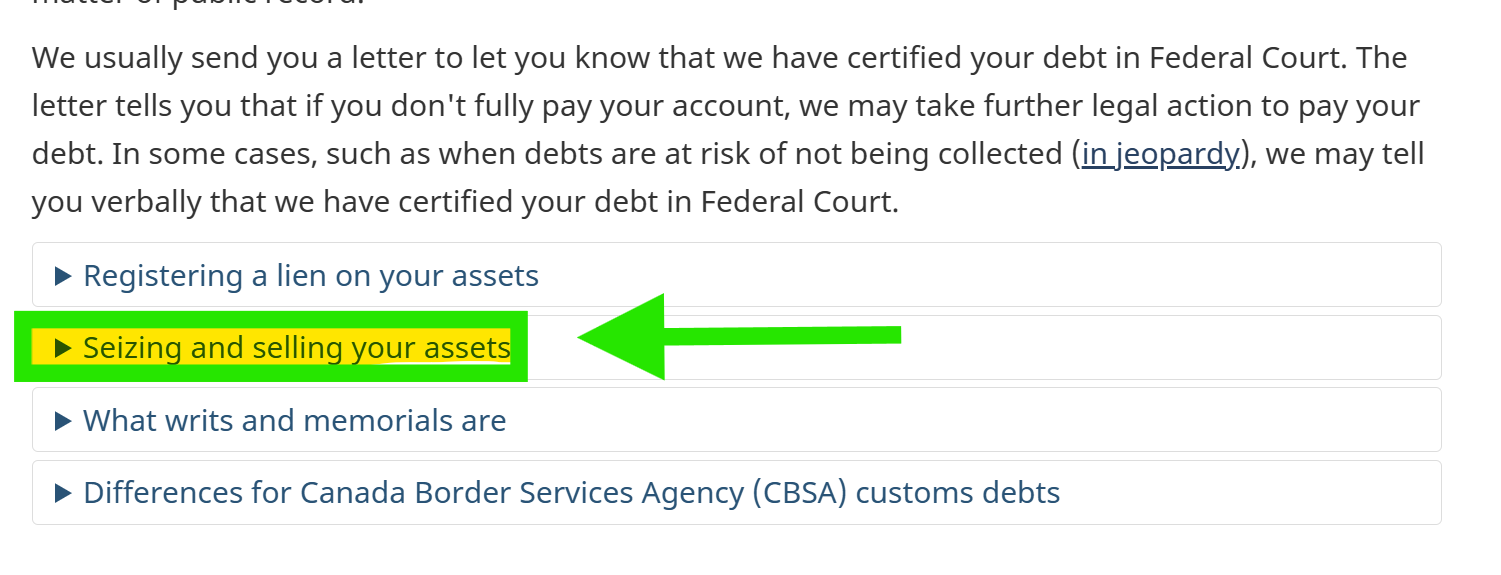
A question I get all the time: “Can the CRA see my assets?” The short answer? Yes. And probably more easily than you think.
CRA has more tools at their disposal than most people realize. If you’re behind on taxes, or they’ve started enforcement, here’s what you should know:
If you owe them money, CRA doesn’t need to take you to court. They can issue what's called a Requirement to Pay and freeze or seize accounts directly.
Once you’ve been assessed and haven’t paid, CRA can move fast. This includes garnishing your wages, seizing business income, or even registering liens on property. They don't always give you a heads up either, especially if they’ve been chasing you for a while.

You still have rights. If you’re dealing with a CRA collections officer, you can:
You’re also allowed to ask for a full list of what CRA is basing their enforcement on.
Final Note:
If you're behind, don't wait. I've seen files where CRA seizes bank funds overnight, no warning, just a frozen account and a missed mortgage payment.
If you need help cleaning things up or defending against a CRA collections officer, let’s talk. I’ve worked both sides.
Optional References
You can mention this book quote (from your photo) or just summarize the concept like:
CRA doesn’t need a court order to demand information from your bank, employer, or even tenants. Once they’ve assessed you, they can seize or garnish based on internal powers granted by the Income Tax Act.
--
This is not legally binding tax advice. This is educational analysis. Say hello if you need help.
WhatsApp - 613.600.4194
--
Disclaimer
The information provided on this page is intended to provide general information. The information does not take into account your personal situation and is not intended to be used without a specific consultation. Lucas CPA Professional Corporation will not be held liable for any problems that arise from the usage of the information provided on this page.